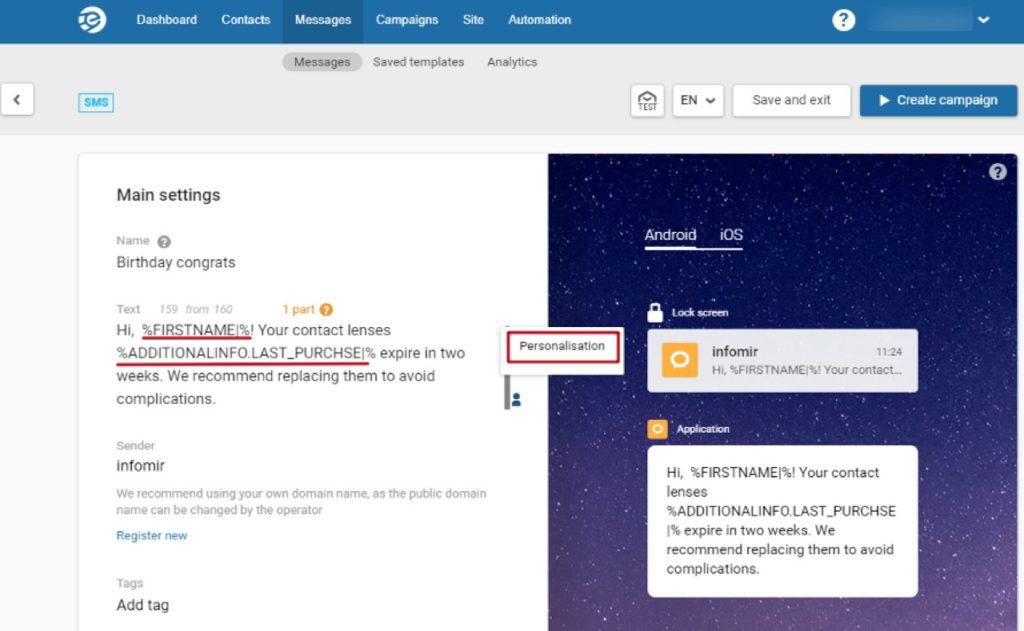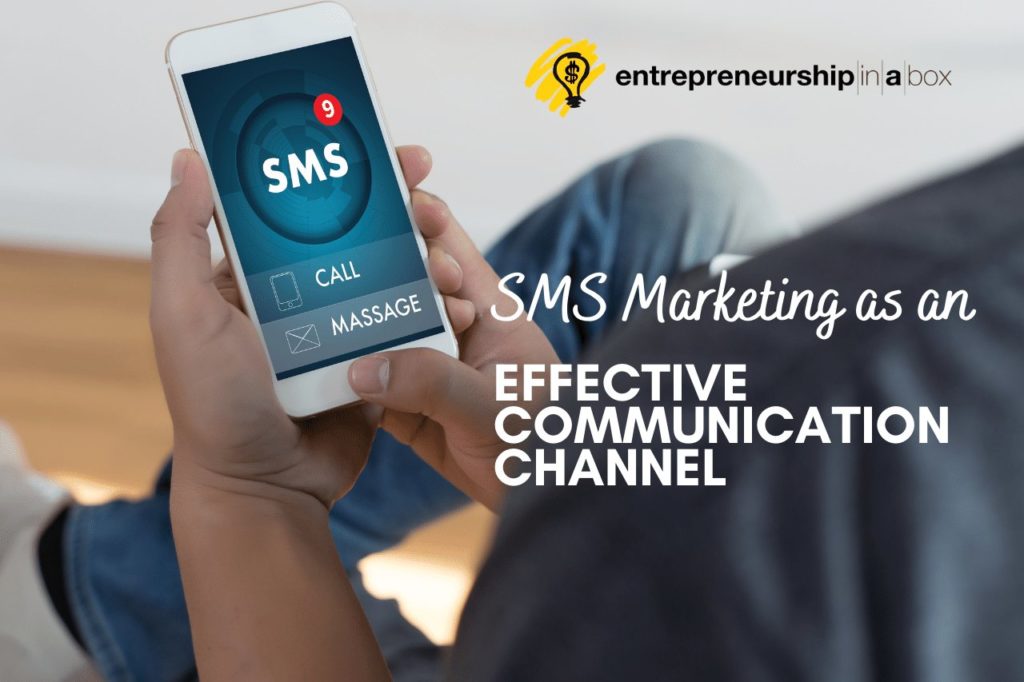Today, a smartphone has turned into a device people always hold close. Its functionality has long expanded way beyond calls and texting with friends: news, entertainment, social media life, work, time management, fitness result tracking… Name the task, and be sure there is an app in the smartphone that helps manage it.
Obviously, this multipurposeness couldn’t go unnoticed by businesses. Being an addition to marketing strategies first, today SMS campaigns are a separate communication channel widely used to engage customers and promote products and services.
Why do I need SMS marketing when I already use other channels?
Every communication channel has its application and target audience. The more of them you use, the wider your marketing coverage. What’s more, every channel can work as a part of the omnichannel strategy, delivering a seamless shopping experience where the customer is ready to respond to it at the current moment.
And this is where SMS campaigns have numerous advantages:
SMS are quick to create.
You don’t need to work with code or images; good copywriting is often the only skill you need to come up with a good message.
SMS don’t land to spam.
Or to Promotions which most marketers also aim to avoid considering this tab less selling. SMS messages are always delivered to the main (and the only) folder with messages and are hard to be left unnoticed.
SMS doesn’t affect your deliverability.
Any marketer knows how many things you need to take care of when it comes to email marketing: schedule consistency, domain authentication, DNS records, anti-spam policies, email list validation, to name a few. What’s more, email clients constantly update their filters and tab division algorithms, so it’s necessary to keep all their requirements under the radar.
SMS aren’t strictly regulated by customer policies.
GDPR, CCPA, LGDP, PIPEDA… Due to the absence of one regulatory body, each country and even state or county has its own customer privacy provisions that you need to follow to run commercial activities on the covered territory. And although bad content sent via SMS will do you no good as well (no income, lost trust of subscribers, bad reputation, the ban by telecom provider), you don’t have to update your cookie policy or terms of use every time another law comes into effect.
SMS can reach people who might not have an email address.
This is especially applicable to communication with seniors. Although today more and more aged people get computers and Internet-intelligent, there are still those insecure about modern technologies. For them, the format of SMS may be more user-friendly.
SMS are effective to deliver urgent news.
While emails can go Spam or simply rest unnoticed in the Inbox, SMS has more chances to be opened right after delivery. That’s why transport companies, airlines, and insurances always first ask for a phone number to send important information.
How do I make my SMS campaigns more effective?
Although an SMS has the simplest structure – text-only – you can possibly think of, there are numerous tactics you’d better be following to make SMS campaigns fully effective.
Use SMS to deliver only important information.
A phone number is believed to be a more personal contact than an email address or push token, so messages sent to it have more trust credits. By using it to send every regular promo, you devalue this privacy, turning SMS into a mere advertising platform that isn’t necessarily worth the attention.
To avoid this happening, use SMS marketing messages only for important notifications: order information, delivery status, changes in a personal account, etc. And when sending promo offers, carefully think over the campaign type: it should be as personal as possible. Birthday congratulations, anniversary, results of the challenge the customer participated in – what you send should resonate with the recipient and appeal to their interests.

Use direct and clear language.
SMS space is limited, so your task is to include all the vital info one or two sentences. Therefore, they should be crisp, logical, and explicit. Avoid ambiguous and too long text. Short but confusing won’t do as well. After reading your message people should have a clear idea of the offer and how to respond.
For example, compare the two texts for SMS marketing:
School supplies to celebrate a new academic year. Visit our site for more.
Get ready for school. Visit SchoolsUp to save 20% off on backpacks and lunchboxes.
The first tells that you hypothetically sell school supplies and have a website. There is no direct call or encouragement to give your brand a try. The second message is more specific (backpacks/lunchboxes), offer an incentive (20%), and use imperative language (get ready, visit, save). It doesn’t make people guess what you expect them to do.
Add dynamic content
Find out if your marketing automation platform supports personalization for SMS. If you (hopefully) use a professional provider, they should have this functionality, meaning you’ll be able to make your campaigns more personalized. By the way, adding a name isn’t the only way to do so. The last purchase that requires replacement, the number of the previous order, the last support inquiry, the granted bonuses, etc. can show the recipient you know the history behind your communication and are there to solve their personal needs.

Watch the spelling
Poor grammar and spelling errors steal credits even from the best offers, making your SMS look unprofessional. And the customer can shift this unprofessionalism from messages to your whole services which is what you obviously don’t want. So, don’t treat SMS marketing with disregard; this communication channel should be paid as much attention as any other marking strategy you run.
SMS can benefit your business in many ways. It allows you to quickly come up with important notifications when you don’t have time for more complicated emails. Also, it has more potential to catch attention and not let people miss out on essential content. It can be personalized and tailored to each recipient so that people get only relevant offers. For better results, team up SMS marketing with other channels like email or push notifications to create a solid omnichannel strategy.

Author’s Bio
Iuliia Nesterenko
Is a technical writer at eSputnik. Her focus is on exploring current digital marketing trends and describing new strategies for email marketers.



